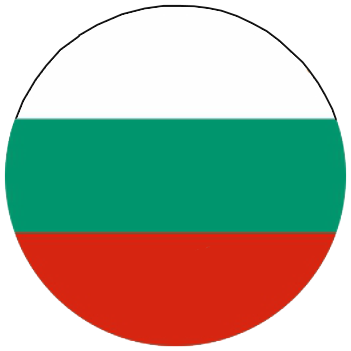
Bulgaria opens its doors to foreign workers — successes and challenges
In 2024, Bulgaria saw a significant increase in the number of work permits issued to foreign nationals. According to official statistics, almost 36,000 permits were issued to citizens from 79 countries, 10,000 more than a year earlier. This impressive growth is explained by the growing demand for qualified personnel in various sectors of the Bulgarian economy. The main labor supplying countries for Bulgaria were Turkey, Uzbekistan, Kyrgyzstan, Nepal and Moldova. These countries provide the lion's share of foreign workers who come to the country in search of better job opportunities and a higher standard of living.
Sectors of the economy that attract foreign workers
The largest influx of foreign professionals is in sectors such as hospitality, construction, IT, call centers, and manufacturing. Each of these sectors has significant skills shortages and seeks to attract both skilled and low-skilled workers from abroad.
- Bulgaria's hospitality and tourism industry is booming, attracting many foreign tourists. This creates a high demand for workers who can provide quality service and speak foreign languages. Many hotels and restaurants are actively recruiting staff from Central Asia, Turkey and Moldova.
- The construction sector is also experiencing an acute shortage of workers. The growing pace of construction of residential and commercial projects requires a large number of low-skilled workers willing to work on construction sites. Many construction companies are turning to foreign labor to fill the shortage of local manpower.
- The IT sector and call centers in Bulgaria are actively developing, attracting investments from large international companies. These industries need qualified specialists with foreign language and technical skills. Bulgarian employers are increasingly looking for talent abroad, offering competitive salaries and attractive working conditions.
- Bulgaria's processing industry, especially textiles and food processing, is also actively attracting foreign workers. These sectors offer many jobs for low-skilled personnel willing to work in factories and plants.
Challenges in retaining foreign workers
Despite the high influx of migrants, Bulgaria faces serious problems in retaining foreign workers. Statistics show that more than 40% of newcomers leave the country within the first three months of arrival. This is due to a number of factors including low wages, poor working conditions and a lack of affordable housing.
- Many foreign workers who come to Bulgaria quickly become disillusioned with the working conditions and wage levels. Although Bulgarian wages are higher than in some migrants' countries of origin, they are still significantly lower than in more developed European Union countries. This encourages many foreign workers to seek better opportunities in other EU countries, especially in Western Europe.
- Poor working conditions, including long working hours, lack of social guarantees and inadequate safety measures, also contribute to high turnover among foreign workers. Many employers do not pay adequate attention to providing comfortable working conditions for their employees, leading to dissatisfaction and dismissals.
- Another serious problem is the lack of affordable housing for foreign workers. Many migrants face difficulties in finding suitable and inexpensive housing, especially in the major cities of Bulgaria. This creates additional financial and domestic problems that push foreign workers to decide to leave the country.
- In recent years there has been a decrease in the number of seasonal workers in Bulgaria. According to statistics, the number of seasonal workers has decreased by 2,000, with a significant proportion of them being Turkish citizens. This may be due to changes in migration policy and stricter rules for issuing short-term work visas.
- At the same time, the demand for skilled professionals in Bulgaria remains high. However, only 800 people have received the EU Blue Card — a special work permit for highly qualified specialists from third countries. This number is far below employers' expectations and reflects the gap between the needs of the labor market and the real possibilities of attracting qualified personnel from abroad. Bulgarian companies, especially in the technology sector, have difficulties in filling vacancies requiring high qualifications and specialized skills. Despite efforts to attract foreign talent, bureaucratic hurdles and relatively low wages compared to other EU countries prevent Bulgaria from taking full advantage of the Blue Card.
To make Bulgaria more attractive to foreign workers, it is necessary to improve working conditions, increase wages and create a more comfortable environment for migrants. This may include measures to provide affordable housing, simplify work permit procedures and provide social guarantees.
Install our app and get all the tools you need to search for real estate abroad in your smartphone! The mobile application will allow you to quickly access your personal account, manage your favorite properties and track your requests, directly exchange messages with sellers and buyers.

Prospects and opportunities
- Despite the existing problems, Bulgaria has good prospects for further attracting foreign labor and developing the economy. The country's accession to the Schengen area from January 1, 2025 opens up new opportunities for growth in various sectors. The free movement of people and goods within the Schengen area is expected to have a positive impact on Bulgaria's transportation sector, industry, tourism and agriculture. This may lead to an inflow of foreign investment, job creation and increased demand for skilled labor.
- In addition, membership in the Schengen area may contribute to the development of Bulgaria's tourism sector. Visa facilitation and free movement within the Schengen zone may attract more foreign tourists, which will create additional employment opportunities in the hotel and hospitality industry.
To summarize, Bulgaria is going through a period of significant changes in the labor market due to the influx of foreign labor. Attracting foreign workers is not only a challenge but also an opportunity for Bulgaria to modernize its economy and increase its competitiveness in the international arena. Success in this direction will depend on the country's ability to adapt to the new realities and effectively manage migration flows. Despite its impressive performance, the country faces serious retention problems and structural imbalances. In order to take full advantage of the benefits of attracting foreign workers, Bulgaria needs to take comprehensive measures to improve working conditions, increase wages and create a favorable environment for migrants. Addressing labor market problems requires joint efforts of the government, employers and the education system.
Bulgaria's accession to the Schengen Area opens new prospects for economic growth and attracting foreign investment. The development of the transportation sector, industry, tourism and agriculture can create additional employment opportunities for both locals and foreign workers. In the long term, Bulgaria should strive to create a more sustainable and inclusive labor market that can effectively utilize the potential of foreign labor while developing local talent. This will require targeted investments in education, training and innovation.
 Real Estate in Bulgaria
Real Estate in Bulgaria

In recent years, Bulgaria has become a magnet for investors looking to invest in promising real estate. Find out about the latest trends in the Bulgarian real estate market. A detailed overview of construction technologies, popular locations and investment prospects. The Black Sea coast and ski resorts are in the spotlight

A detailed guide to moving to and obtaining a residence permit in Bulgaria. Learn about the benefits of living in this welcoming European country, the immigration process, economic prospects, education and cultural adaptation.

On January 1, 2025, Bulgaria and Romania will become full members of the Schengen area, joining the EU visa-free area after years of negotiations. This decision opens a new chapter in the European integration process for these countries.









 41.51
41.51  1
1  1
1  1
1  2
2 




















